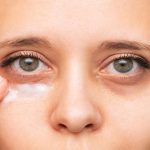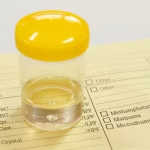Talking about sexually transmitted diseases (STDs) can feel uncomfortable—but taking control of your sexual health shouldn’t be. Regular testing is not only a responsible step for yourself, but also a thoughtful act that protects others. Understanding the real STD test benefits helps break the stigma and encourages more people to make testing a natural part of their healthcare routine.
Why Early Detection Matters
One of the most important benefits of STD testing is early detection. Many STDs don’t show symptoms right away, or at all. This means someone could unknowingly pass an infection to a partner or develop serious health problems later on. Testing helps catch issues early—before complications arise or transmission occurs.
Timely treatment makes a huge difference. For example, untreated infections can lead to fertility problems, long-term pain, or complications during pregnancy. But when caught early, most STDs can be treated effectively, often with a short course of medication.
Peace of Mind Is Powerful
Another overlooked benefit of regular STD tests is the peace of mind they offer. It’s normal to worry after a new sexual encounter or a lapse in protection. Instead of sitting with anxiety, getting tested gives you clear answers.
Knowing your status—whether it’s positive or negative—allows you to move forward with confidence. It removes guesswork from your relationships and empowers you to make informed choices about your health and your future.
Healthier Relationships Begin with Honesty
Getting tested isn’t just about individual well-being—it also strengthens relationships. Whether you’re starting a new relationship or have been with your partner for a while, open conversations about testing build trust.
When both people know their STD status, it becomes easier to talk about protection, safer sex practices, and shared responsibility. STD testing can actually be a positive bonding experience, showing that both partners care about each other’s health and safety.
Breaking the Stigma Around Testing
Despite how common STDs are, there’s still a lot of shame and embarrassment tied to getting tested. But the reality is, anyone who is sexually active—regardless of age, orientation, or background—can benefit from an STD test.
Normalizing routine STD screening helps break this stigma. Just like blood pressure checks or cholesterol tests, STD tests are part of a healthy life. Promoting that mindset is key to improving public health and making testing more accessible for everyone.
Access and Privacy Are Better Than Ever
In Singapore, accessing STD tests has become easier, faster, and more discreet. Whether through general clinics or specialist health providers, appointments can be booked with minimal hassle. Most tests are quick and painless—often just a urine sample or swab, sometimes a small blood draw.
Importantly, these services maintain a strong commitment to privacy. You don’t need to feel judged or exposed when asking for an STD test. Healthcare providers are trained to treat this just like any other health concern—with care, respect, and professionalism.
When Should You Get Tested?
Routine testing should be based on your lifestyle and risk factors. If you’ve had a new partner, multiple partners, or unprotected sex, it’s a good idea to check in. Testing is also smart before starting a new relationship or if you’re planning to conceive.
Even if you feel fine and have no symptoms, it’s worth remembering that many STDs can be completely silent. That’s why regular testing is one of the most responsible habits you can build into your health routine.
Take Charge of Your Health
At the end of the day, STD testing is about taking control—not just reacting when something goes wrong. It’s a proactive move that supports your long-term health and encourages more open, honest relationships.
The real STD test benefits go beyond just a diagnosis. They include peace of mind, safer intimacy, and a more responsible community. Making testing routine, rather than reactive, is one of the simplest yet most powerful ways to stay healthy and informed.




















